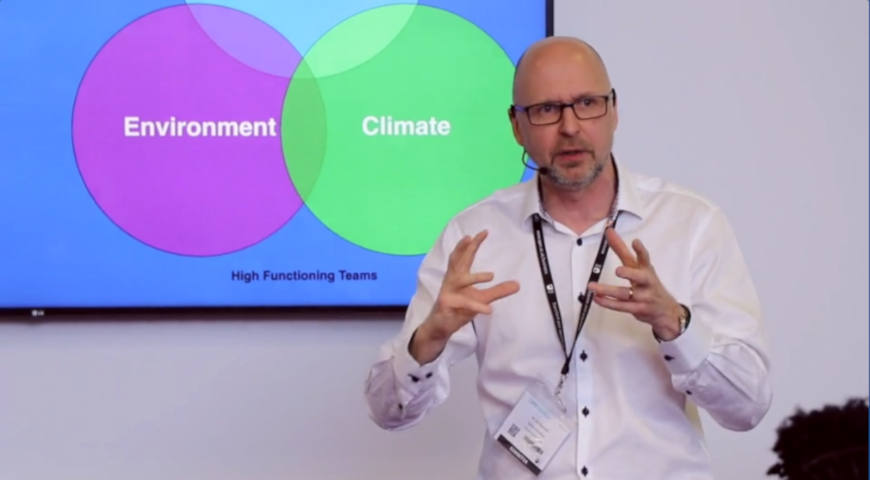 On the 16th October our own Bob Bannister will be taking the podium to address an audience at the 2018 World of Learning Exhibition at the UK’s NEC on the topic of ‘Enabling your workforce for remote learning’. He writes…
On the 16th October our own Bob Bannister will be taking the podium to address an audience at the 2018 World of Learning Exhibition at the UK’s NEC on the topic of ‘Enabling your workforce for remote learning’. He writes…
Research indicates that trust is one of the most easily damaged elements for a team who have switched from traditional working space, to remote / virtual ways of working. This means that those managing remote teams and those responsible for remote team development, need to focus specific interventions on engendering and prospering the level of trust between the dispersed group.
There are three key reasons why the level of trust is in danger when working remotely:
1 – The level of relationship between team members is changed and often significantly reduced when remote working. If I don’t know you well, then I am less willing to trust you. This is especially the case with new team members who join the remote team later and so have no prior team relationship from the original co-locate set up.
2 – The credibility of co-workers is less obvious when remote working. When we work alongside each other, we see how others work, what they do etc. We all learn from one another and so improve our practices over time. Both these elements of observation and iterative development (or social learning) take a hit the moment you start working remotely. We trust people who we believe have credibility, so again remote working has the tendency to reduce levels of trust.
3 – The inherent risk goes up. Both organisational and individual employee risk are often impacted through remote working. There is potential for less alignment to the organisation, it’s values, goals and direction. So remote decision making can be challenging and higher risk from an organisational perspective. But individual vulnerability also moves up, so for all parties the risk is perceived as higher. We are far less likely to trust in high stake situations.




